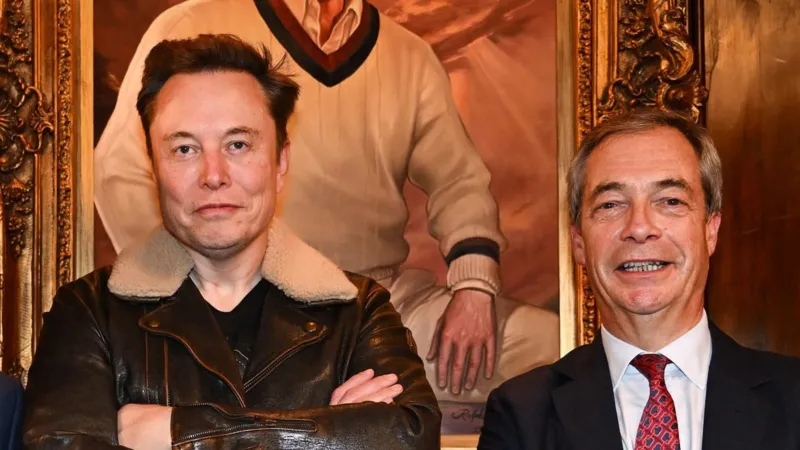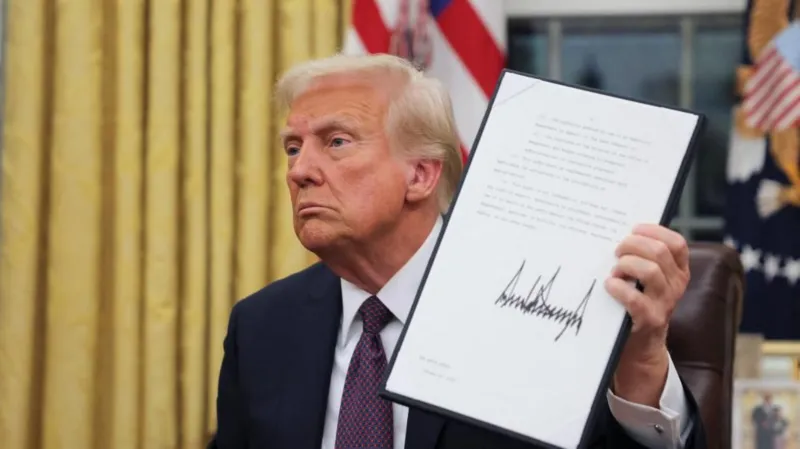Elon Musk, the billionaire entrepreneur and CEO of Tesla and SpaceX, has weighed in on the political scene in the United Kingdom with a sharp critique of Nigel Farage’s potential to lead Reform UK. In a surprising public statement, Musk expressed doubts about Farage’s qualifications and leadership abilities, suggesting that the former UKIP leader “doesn’t have what it takes” to helm the political party.
Musk’s comments, made during a social media exchange, have sparked widespread debate and added fuel to ongoing discussions about the future of Reform UK and Farage’s potential role within the party. Known for his often blunt and unfiltered opinions, Musk’s remarks carry significant weight given his global influence, though they also highlight his willingness to wade into controversial and politically charged topics.
Nigel Farage, a polarizing figure in British politics, is best known for his role in championing Brexit and leading the UK Independence Party (UKIP) through one of the most transformative periods in modern UK history. Farage has recently hinted at a potential return to frontline politics, with Reform UK—a rebranded version of the Brexit Party—being a possible platform for his comeback. However, Musk’s assertion challenges the narrative that Farage would be an effective leader for the party moving forward.
Critics and supporters alike have dissected Musk’s statement. Some agree with his assessment, arguing that Farage’s divisive rhetoric and controversial past may hinder Reform UK’s ability to attract a broader base of support. They suggest that the party needs a fresh face and modern strategies to remain relevant in a post-Brexit political landscape. Others, however, dismiss Musk’s comments as uninformed and question why a tech billionaire with no direct stake in British politics is offering opinions on domestic matters.
Farage, true to his outspoken nature, responded swiftly. He dismissed Musk’s criticism as “uninformed” and “irrelevant,” suggesting that the Tesla CEO’s knowledge of UK politics is limited. Farage also used the opportunity to reiterate his commitment to addressing the concerns of ordinary Britons, claiming that Reform UK’s mission is aligned with the values of freedom, democracy, and sovereignty that he has long championed.
The debate raises larger questions about the intersection of business, technology, and politics. Musk, who has shown a keen interest in global affairs and frequently uses his social media platform to voice opinions on a range of topics, has once again demonstrated his capacity to influence public discourse—even in areas outside his immediate expertise. His critique of Farage may have been an off-the-cuff remark, but it has nonetheless captured the attention of political analysts, commentators, and the public alike.
For Reform UK, the controversy highlights the challenges it faces in establishing itself as a credible force in British politics. Whether led by Farage or another figure, the party will need to navigate a complex and competitive political environment while addressing the skepticism and criticism it continues to face.
Ultimately, Musk’s remarks serve as a reminder of how interconnected the worlds of politics, business, and technology have become in the 21st century. Whether or not his critique will have any lasting impact on Farage’s political aspirations or Reform UK’s trajectory remains to be seen. What is certain, however, is that Musk’s influence extends far beyond the tech industry, making him an unexpected, if not unconventional, voice in global political conversations.




















